
Four Oxford academics awarded European Research Council Starting Grants to launch their ideas
Four researchers in the University of Oxford’s Mathematical, Physical and Life Sciences Division have today been awarded major European Research Council (ERC) Starting Grants, part of the Horizon Europe programme.
Today, the European Research Council (ERC) has announced the awarding of 400 Starting Grants to young scientists and scholars across Europe. Totalling €628 million this year, the grants support early-career researchers (who have up to seven years’ experience after their PhDs) showing great promise and an excellent research proposal. These projects span all disciplines of research, from medicine and physics, to social sciences and humanities.
The application process for ERC Starting Grants is highly competitive: this year, around 15% of applications were successful, with 400 researchers across Europe and other territories receiving awards out of 2,696 proposals. Female researchers were awarded around 43% of grants, an increase from 39% in 2022.
ERC President Professor Maria Leptin said: ‘It is part of our mission to give early-career talent the independence to pursue ambitious curiosity-driven research that can shape our future. In this latest round of Starting Grants, we saw one of the highest shares of female grantees to date, which I hope will continue to rise. Congratulations to all winners and good luck on your path to discovery.’
The Oxford Award winners
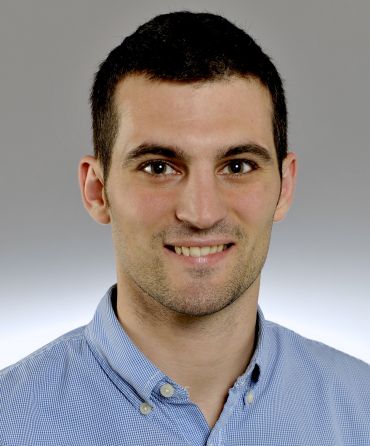 Associate Professor Emilio Martinez-Paneda
Associate Professor Emilio Martinez-Paneda
Associate Professor Martinez-Paneda said: ‘With the ERC Starting Grant, I will investigate whether a counter-intuitive approach can develop a new class of materials with inbuilt resilience to hydrogen-assisted damage. This will deliberately introduce defects that can act as “beneficial traps”, to limit hydrogen diffusion within the metal. To achieve this, the research will combine a wide range of experimental and computational techniques spanning the areas of solid mechanics, computational engineering, manufacturing, materials engineering, and physical chemistry.’
He added: ‘I am delighted to be awarded an ERC Starting Grant. The ERC programme is unique in that it allows researchers to explore radical fundamental ideas that can carry a high risk, but can also be very disruptive. I am very grateful to my mentors, collaborators, and the members of my research group for their support and encouragement.’
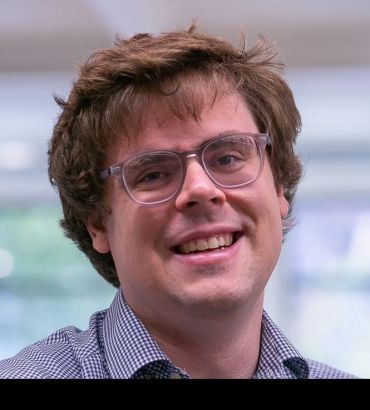 Dr Tom Rainforth. Image credit: Mel Cunningham/Vivacious Mel Photography.
Dr Tom Rainforth. Image credit: Mel Cunningham/Vivacious Mel Photography.
Dr Rainforth said: ‘Advances in machine learning have transformed our ability to utilize data. But far less progress has been made on intelligently acquiring such data in the first place. Consequently, though data-driven approaches are now ubiquitous across science and industry, hand-crafted and heuristic approaches are typically still the norm for data acquisition itself.’ Using the ERC Starting Grant, Dr Rainforth will address this shortfall by developing principled quantitative methods for data acquisition. In particular, this work will construct adaptive algorithms that utilise previously gathered data to guide future data acquisition. To achieve this, Dr Rainforth intends to leverage ideas from experimental design, information theory, machine learning, and Bayesian statistics.
‘This grant will provide me and my group with an amazing platform to make significant advances in the crucial, but underexplored, research area of data acquisition’ Dr Rainforth added. ‘This will hopefully produce research with substantial wide-reaching impact in domains as diverse as interactive surveys and virtual assistants, to laboratory experiments and psychology trials. I would like to thank everybody who has helped make this application successful, from my wife Sophie for her unwavering support, to my amazing D.Phil students and wonderful colleagues who helped me tremendously with the application process.’
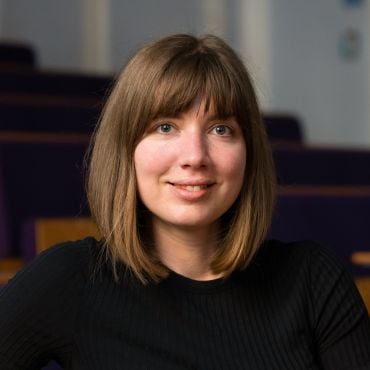 Associate Professor Ludmilla Steier.
Associate Professor Ludmilla Steier.
In particular, the project will investigate low temperature routes to develop high-performant thin film sulphide perovskite photocatalysts, and use advanced characterisation techniques
to establish a detailed understanding of the optoelectronic and surface catalytic properties of this emerging class of materials. ‘This will allow unprecedented atomistic insight into the underlying mechanisms of the reactions key to the decarbonisation of our economy’ said Professor Steier.
She added: ‘I wouldn’t be here without my mentors, colleagues, friends and family who have been not only supportive and inspiring all along, but have also provided key opportunities for me to grow as a researcher, supervisor, and person. A special thanks to my group for their many exciting results that keep sparking new ideas, and many thanks to the ERC reviewers and the panel whose evaluation and questions will be very helpful when we start tackling PHOTOCAT3.0.’
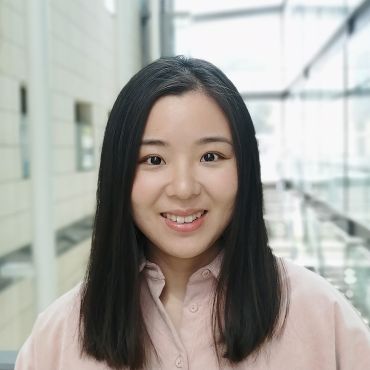 Associate Professor Yujia Qing.
Associate Professor Yujia Qing.
Professor Qing said: ‘I am delighted to receive this ERC Starting Grant, which offers a rare opportunity for us to focus on a long-term and high-risk project. My heartfelt thanks go to my mentors, colleagues, and collaborators for their support in shaping my career and this application. I also want to extend my thanks to my team, whose hard work has generated promising preliminary results that form the foundation of the proposed project.’
Full details about the 2023 ERC Starting Grants can be found on the ERC website.
The holding of ERC awards by researchers based at UK institutions is subject to formalisation of the UK’s association to Horizon Europe, which remains the stated priority for the UK Government, in line with the Trade and Cooperation Agreement agreed between the UK and the EU in December 2020. In the event that association is not confirmed by the final date for signature of grant agreements then the UK Government’s Horizon Europe guarantee funding will apply, with UK awardees receiving equivalent funding via UKRI.
 New research shows high temperatures affect sex ratios at birth
New research shows high temperatures affect sex ratios at birth
 COVID-19 vaccination during pregnancy offers new insight into preeclampsia prevention
COVID-19 vaccination during pregnancy offers new insight into preeclampsia prevention
 Expert Comment: Should the UK relax clean energy targets?
Expert Comment: Should the UK relax clean energy targets?
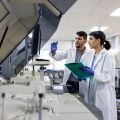 Existing hospital analysers offer a low-cost method to screen for fake vaccines
Existing hospital analysers offer a low-cost method to screen for fake vaccines